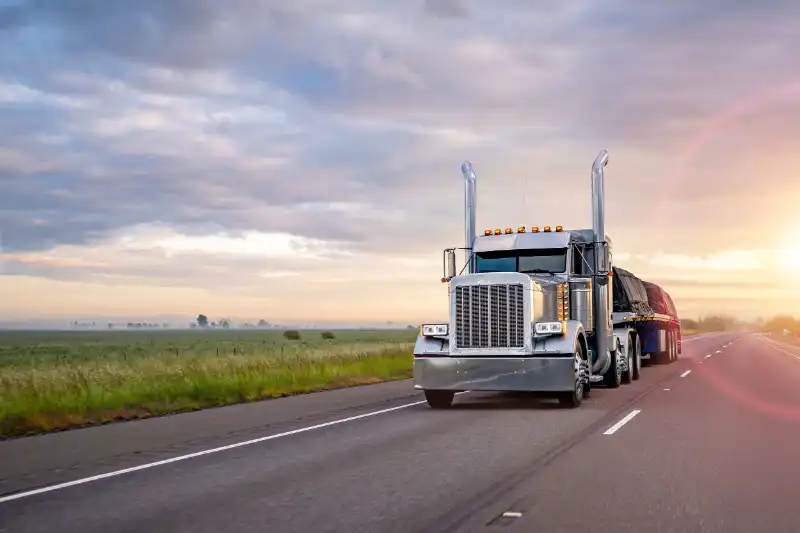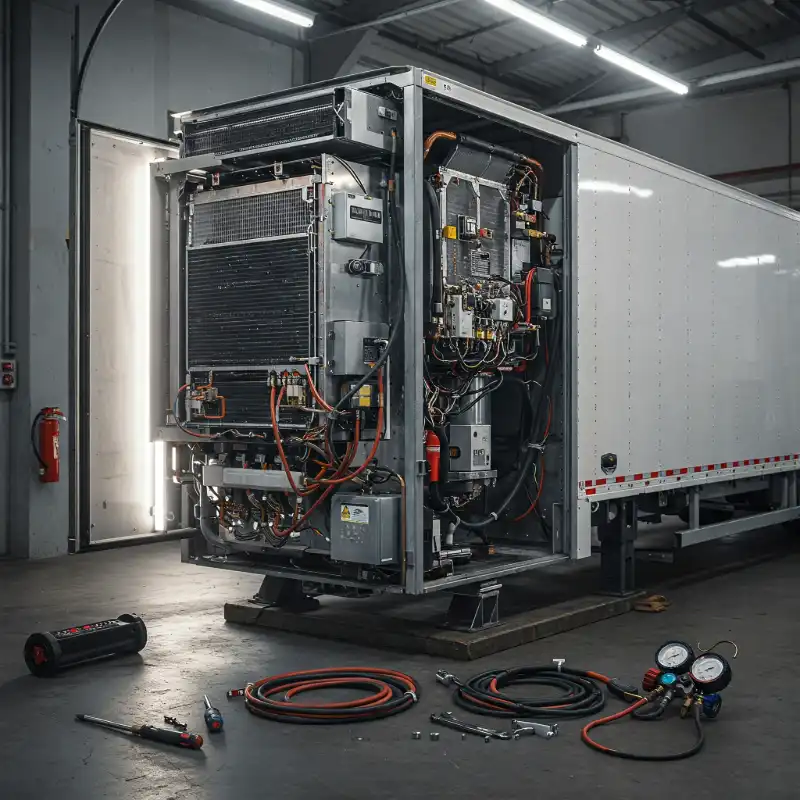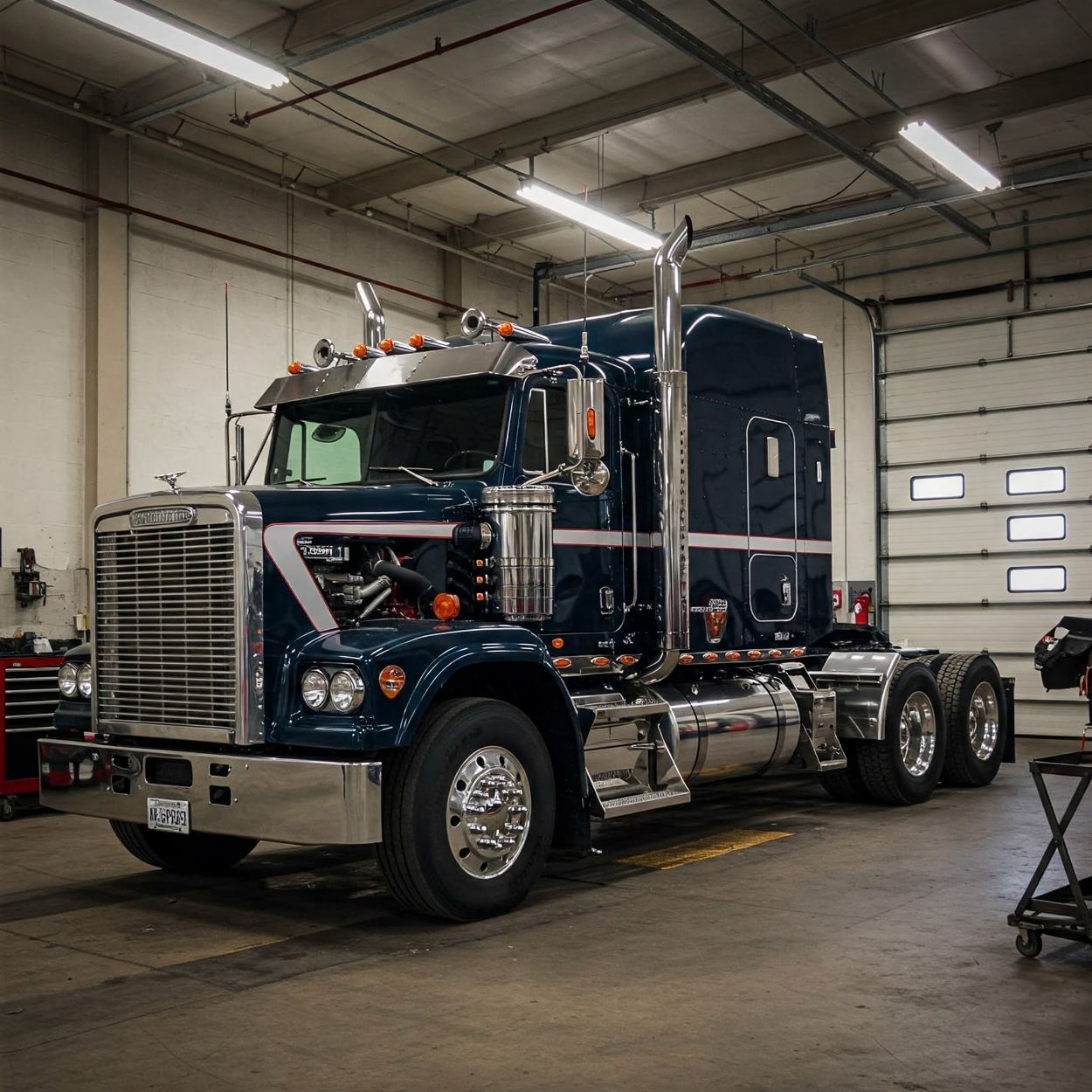.avif)
Managing a fleet is hard enough at the best of times. But when you’re overseeing one that carries fresh produce, you’re faced with even more headaches. From unexpected breakdowns to staying on the right side of strict health regulations, there’s potential for disaster everywhere.
But don’t worry about all of that nonsense. We’re here to walk you through the five most common problems in fleet management and, more importantly, how to solve them.
1. Unscheduled Downtime
The Problem
Unexpected downtime is a fleet manager's worst enemy. A breakdown in the middle of a delivery throws your schedule out of the window and puts the quality and safety of your cargo at risk. Unhappy customers, wasted produce, and forking out for expensive repairs.
Absolute nightmare scenario.
The Solution
Preventative maintenance is your best friend. Create (and, more importantly, follow) a rigorous maintenance schedule to always stay one step ahead of breakdowns. Regular inspections help spot potential issues before they develop into costly and time-consuming repairs.
If you’re not already using fleet maintenance software and telematics to track these processes, then this needs to change. Trust us, this will improve every aspect of your job, including your stress levels.
2. Compliance with Health and Safety Regulations
The Problem
Yes, we know these regulations may seem strict, but let’s face it: they have to be. You can’t just whack a load of half-frozen chicken in an unrefrigerated box van and be like, “Yeah, that’s fine.” They’re there for a reason, and non-compliance is the fastest way to hefty fines and some serious reputation damage.
Following these regulations when managing a large fleet is one thing. Keeping up with their ever-changing boundaries, however, is a challenge in itself.
The Solution
Stay informed and organized. Find resources that keep you posted on any regulation updates, be they federal or local. Keeping your drivers updated on these changes as well not only ensures compliance but also promotes a culture of safety within your organization.
3. Fuel Efficiency
The Problem
Rising fuel costs can quickly decimate your budget if your fleet isn’t fuel efficient. Getting the most bang for your buck at the pump has never been as important as it is today.
The Solution
Ok, so there are three things that you need to do to increase your fleet’s fuel economy.
- Invest in preventive maintenance: We’ve already mentioned how this can help, so we won’t harp on too much. But remember, a well-maintained fleet is a fuel-efficient fleet.
- Driver training: Educate your drivers on fuel-efficient driving techniques, such as smooth acceleration, maintaining steady speeds, and reducing idle time.
- GPS route optimization software: This helps plan the most efficient route and will even update in real-time to respond to things such as accidents that may cause delays.
4. Inventory Management
The Problem
How many times has one of your drivers arrived at their destination, only for them to call you and let you know they’ve got the wrong cargo? This simple mismanagement error can have a huge knock-on effect beyond just angry customers. Delays, stockouts, and overstocking are just a few more things on your plate that you shouldn’t have to deal with.
The Solution
Inventory management systems can be integrated with fleet management software. This allows for a real-time overview of inventory levels, automatic re-ordering of low stock, and accurate stock forecasting.
Integrate inventory management systems with your fleet management software. This enables real-time tracking of inventory levels, allowing for automatic reordering and accurate stock forecasts. Implementing a just-in-time (JIT) inventory system can also help minimize waste and ensure that you always have the necessary items on hand without overburdening your storage capabilities.
5. Driver Shortage and Retention
The Problem
Hiring good drivers is tough enough; keeping them is even tougher. The shortage of qualified drivers is a huge problem in the food fleet industry. High turnover rates can disrupt your operations and lead to increased recruitment and training costs.
The Solution
Competitive salaries, benefits, and a positive work culture can go a long way in retaining your drivers. Offer regular training and career development opportunities to keep them engaged and improve their skills. Recognizing and rewarding top performers (be it financially or otherwise) can boost morale and loyalty.
Final Thoughts
Managing a food fleet is no easy task, but addressing these common problems head-on can ensure smoother operations and a more efficient fleet. Remember, professional fleet maintenance, compliance tracking, fuel efficiency, effective inventory management, and driver satisfaction are key to overcoming the challenges in food fleet management.
Stay proactive and make use of the latest technologies to keep your fleet running like a well-oiled machine!
To keep your food delivery vehicles in peak condition, be sure to check out our article, where we go through 7 costly mistakes to avoid in your fleet.
More Articles


Top 7 Ways to Keep Your Grocery Fleet Running Smoothly This Summer
Top 7 Ways to Keep Your Grocery Fleet Running Smoothly This Summer
Prevent breakdowns and keep your grocery fleet running efficiently in summer. Learn how to protect engines, tires, refrigeration units, and drivers from extreme heat.


7 Errors in Refrigerated Truck Maintenance and Their Fixes
7 Errors in Refrigerated Truck Maintenance and Their Fixes
Avoid costly breakdowns and cargo loss with proper refrigerated truck maintenance. Learn about the top 7 reefer maintenance mistakes and how to fix them.


What Are the Benefits of Telematics in Managing Food Delivery Fleets?
What Are the Benefits of Telematics in Managing Food Delivery Fleets?
Discover how telematics can optimize your food delivery fleet in Texas. Reduce fuel costs, improve efficiency, enhance safety, and ensure faster deliveries with real-time tracking and smart analytics.
